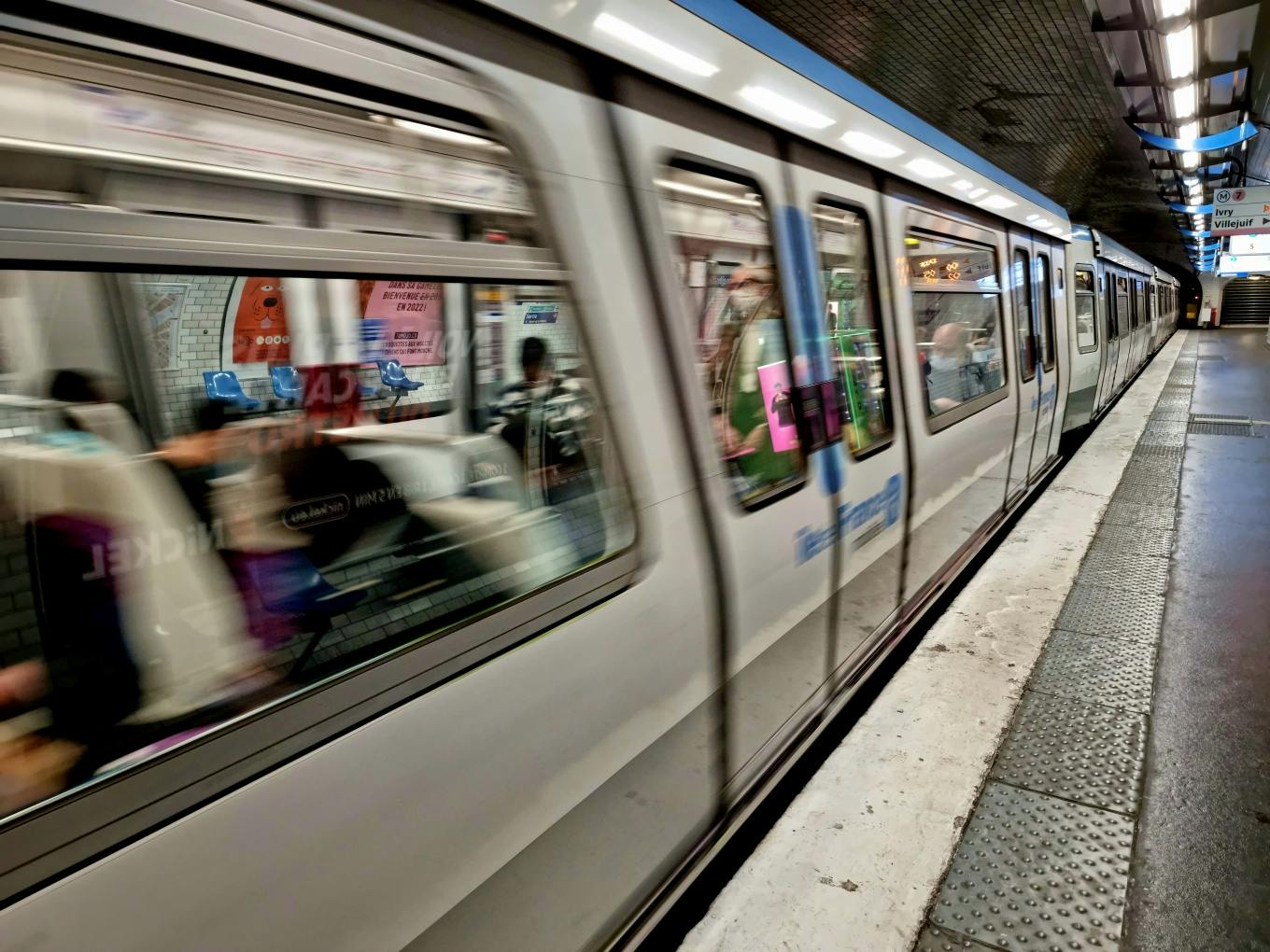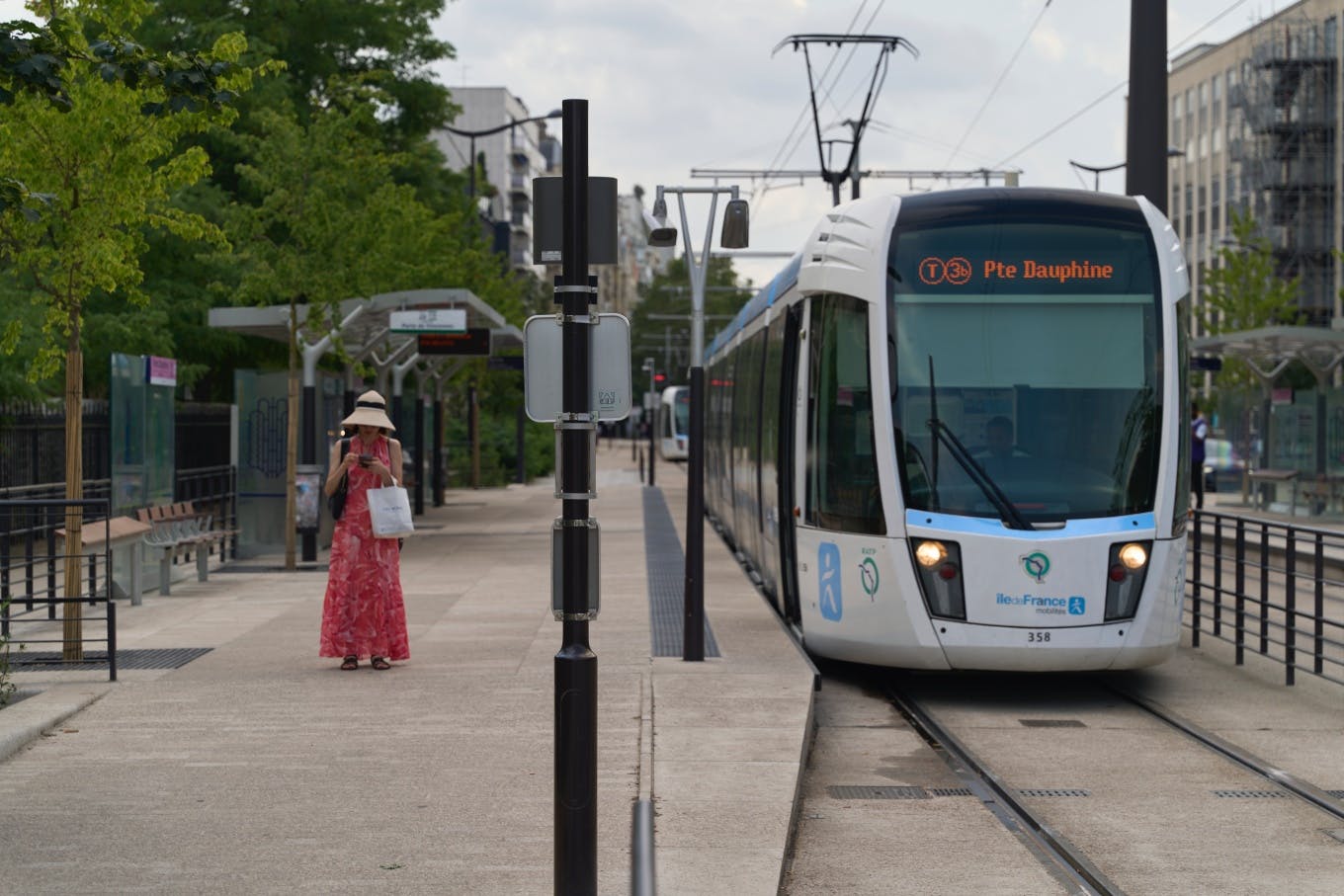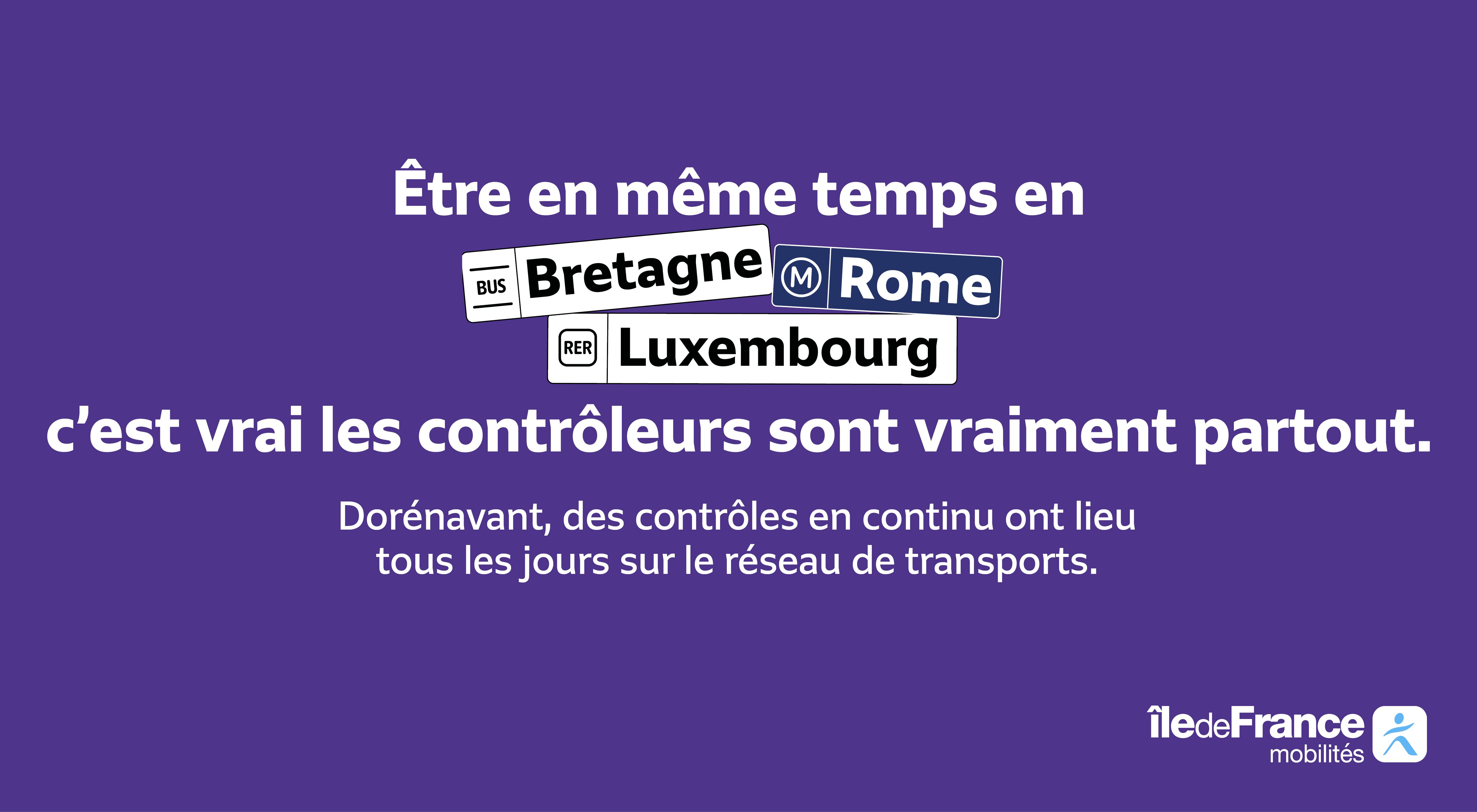3 (good) reasons to stop cheating in transport

A man walks from behind next to a tram line.
Every day, more than 9 million trips are made by public transport in Île-de-France. Behind this record number of passengers (the Ile-de-France network is one of the busiest in the world) hides a more discreet phenomenon, with very real consequences: fraud.
Validating in transport, why is it essential?
Every year, 8% of passengers do not validate a ticket on transport in Île-de-France (tram, train, metro and bus combined). A rate that rises rapidly in the external network (without control at the entrance), with up to 16% of fraud in the tramway and 27% on night buses.
Discover the 3 real (good) reasons to no longer be part of the 8%.
N°1. Validation makes it possible to adapt the offer to the actual number of passengers

A metro train on line 7 in Paris.
Each validation is valuable information for the operation of your transport.
By validating, you allow you to:
- Accurately measure the number of passengers on each line and each hour.
- Adjust the offer accordingly, by ordering and adding new vehicles where needed (buses, trams, metros, trains) and by optimising the frequency of passages, according to needs.
Result? Distorted data, ever heavier trains and passengers packed like sardines.
Did you know?
Of the 16% of people who cheat on the tramway, 9% have a Navigo subscription.
N°2. 700 million euros lost = less comfort for your journeys

The T3b tramway at the Porte Dauphine stop, in the 16th arrondissement of Paris.
So 8% fraud may not seem like much. But 8% corresponds to 700 million euros* lost each year.
The equivalent of:
- 2 new tram lines
- or 1500 brand new clean buses
- 41 additional RER trains
- or 71 new metros on your lines
In short, fraud means depriving the public transport network of an essential part of its resources to invest in the improvement, comfort and modernization of your trips.
N°3. Controls are being tightened and fines are getting heavier
Faced with the scale of the phenomenon, Île-de-France Mobilités is stepping up the fight against fraud with a clear objective: to halve it.
Several actions have been put in place:
The "Stop Fraud" system to check the identity and address of fraudsters
For the past few months, a newcomer has been changing the game in terms of fraud. This is the "Stop Fraud" system**, a platform connected to the tax database of the Ministry of Public Finance, which allows controllers to instantly verify the identity and address of fraudsters.
More agents, more controls: playing hide-and-seek is becoming more and more risky
In addition to the 500 agents exclusively dedicated to controls on the Île-de-France Mobilités network, the Regional Transport Brigade is increasing its staff to 100 agents dispatched to the field.
Repeated checks: an experiment that works in the Yvelines
From September 30 to October 11, 2024, 13 bus stops were repeatedly checked between Trappes and Saint-Quentin-en-Yvelines. Results? More than 10,000 travellers checked, 700 offences and a fraud rate halved (from 13% to 6%).
Continuous control operations that will be extended throughout the region, where the fraud rate remains high.
Increasingly high fines
- Between €30 and €72 if you pay on site (depending on the mode of transport)
- +€50 if you delay paying (within 90 days)
- After 90 days, the Treasury takes over your file
- In the event of a repeat offence*** (5 fines over 12 months), the fine for repeated fraud can reach €7,500 and be accompanied by six months' imprisonment.
A rather high price to pay when you know that fares adapted to all incomes exist for transport users in Île-de-France.
Validating: a small individual gesture, a big collective step
Validating your ticket is a small individual civic gesture with a huge collective impact on your transport.
So the next time you get on a bus, tram or pass through the metro gates, think about it: every "beep" contributes to smoother and more comfortable journeys, year after year.
*Estimated
**In accordance with Article L2241-2-1 of the Transport Code, the agents of the transport service operator responsible for the collection of fines may obtain from the public administrations and social security bodies information limited to the surnames, first names, date and place of birth of the offenders, as well as their home address.
In accordance with Article L2242-6 of the Transport Code, any person who has accumulated more than 5 fines for travelling without a transport ticket or with an invalid transport ticket, in the space of 12 months, is liable to a fine of up to €7500 and 6 months imprisonment.


